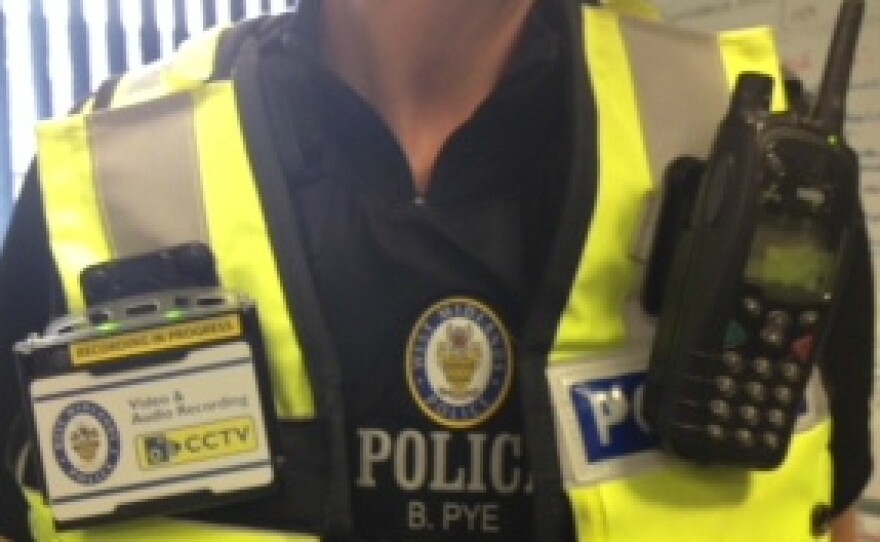San Diego police officers equipped with cameras on their uniforms will be allowed to record interactions with the public within private homes, Chief Shelley Zimmerman said Wednesday.
The chief outlined for the City Council's Public Safety and Livable Neighborhoods Committee the SDPD policies developed for use of the new cameras.
The cameras will always be on during an officer's shift, recording in 30-second loops so that video of the moments leading up to an interaction will be saved, she said. The officer will activate full video and audio recording before a contact.
"Private citizens have a reasonable expectation to privacy in their homes," Zimmerman said. "However, when an officer is lawfully present inside a home, such as on a warrant, consent or exigent circumstances as examples — in the course of the officer's official duties — there's no reasonable expectation of privacy."
The chief said officers will not be required to inform citizens that they are being recorded, but should acknowledge it when asked. They will also not be required to stop recording if a citizen makes a demand, she said.
Zimmerman also described situations when officers will not push the record button, including:
- non work-related activity in a locker room, break room or restroom;
- when someone is being examined by a physician because of patient-doctor confidentiality;
- when someone is a victim or witness of a sex crime or child abuse;
- a peaceful demonstration, until it appears the gathering is about to become unlawful; and
- victims or witnesses of other crimes so there is no hesitation to share sensitive information.
However, domestic violence victims, who often quickly recant their statements, should be recorded, she said.
Kellen Russoniello, of the American Civil Liberties Union of San Diego and Imperial Counties, said the public should be informed upfront about the recording, and should be allowed to obtain a copy. Strong disciplinary procedures are also needed for officers who do not follow the procedures, he said.
The first 75 cameras will go into full-time use by the end of this month in the Central, Mid-City and Southeastern divisions, she said. A couple of types of cameras were tested for several months.
The item was only before the committee for information, so no action was taken. Zimmerman might make a similar presentation to the full City Council in the future.







